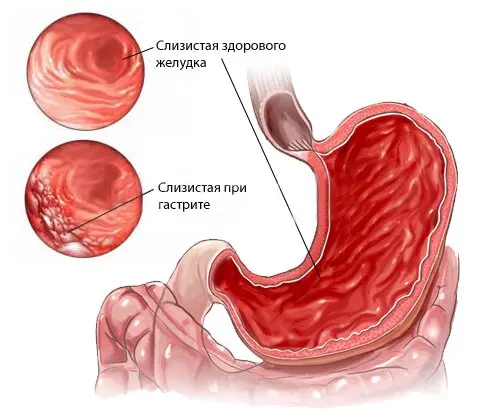Contents
- Description
- The causes
- Evolution and possible complications
- Treatment and prevention: what solutions?
- What should be the feces of a healthy person?
- Possible causes of black stools?
- Is black feces in a child normal or pathological?
- Black stool during pregnancy
- What to do if feces turn black?
- When do you need to urgently see a doctor?
- What examination should be done with a black stool?
- Where to go for black stool?
The stools are usually brown. Emitting black stools (like charcoal) can be a sign of a problem with the digestive system, such as digestive bleeding, and requires urgent medical attention. They can also be due to the intake of certain foods or drugs, for example iron-based.
Description
Stools, or feces, allow the body to move away solid wastes from digestion and other metabolic processes. Stool normally contains about 75-85% water and 20% dry matter.
Usually their coloring is brown, due to the presence of brown bile pigments called stercobilin and urobilin.
Sometimes the color of the stool may change. An unusual black discoloration of the stools should lead to a doctor’s consultation.
Black stools in babies
Note that in newborns, the first stools emitted after birth are black, and their consistency resembles that of fuel oil. This is completely normal: it is meconium.
The causes
The emission of black stools, regardless of their consistency (liquid or not), may be a sign of bleeding (or hemorrhage) occurring in the upper digestive system, especially the stomach.
We then speak of melena or melaena. It is estimated that about 80% of digestive hemorrhages are discovered following melena.
In faecal occult blood, the stools are black as coal and very foul-smelling. The color is caused by the presence of digested blood.
There are many causes of digestive bleeding. These include:
- an ulcer;
- trauma or shock;
- a tear in the esophagus;
- varicose veins of the esophagus or stomach;
- or to gastritis.
However, some foods and medicines can darken the color of stools and make them appear dark brown or black. So, if no other symptoms are present, the black stools may simply be due to their consumption.
These include, among others:
- iron supplements;
- bismuth drugs;
- activated charcoal;
- beetroot (dark purple color);
- cuttlefish (with its ink);
- black pudding;
- spinach (dark green);
- or even blueberries or blueberries.
When the smell is not unusual, there is usually no cause for concern. If in doubt, consult your doctor.
Evolution and possible complications
If the black coloration is related to taking a drug or eating a food, there is no action to be taken. Everything will be in order quickly.
On the other hand, the presence of digested blood in the stool is a symptom which should lead to an emergency consultation.
Treatment and prevention: what solutions?
It is recommended to go to the emergency room of a hospital in case of melena, in order to carry out the medical examinations necessary for the diagnosis. In case of digestive bleeding, surgery may be necessary.
The cause of the bleeding will then be determined by the medical team, in particular by a gastroenterologist.
The physical and chemical characteristics of feces can tell a lot about a person’s health, in particular, about the work of his digestive tract. With a monotonous lifestyle and nutrition, the stool is stable, has almost the same color, the shade of which changes slightly. A sharp change in color requires attention, as it can signal serious disorders in the body. You should be especially wary if the stool has changed color to black. In some cases, this color is associated with serious pathologies of the digestive tract. Delay in their treatment can cost a person life.
What should be the feces of a healthy person?
Fecal masses are formed from chyme (food lump) as a result of its enzymatic processing. The quality of the transformation and assimilation of food depends on the activity of digestion, which includes many factors (activity of the secretion of the digestive tract, motility, diet composition). The formation of stool is completed in the intestine. After complete processing, feces leave the body in the form of decorated elements of various shades of brown (from yellowish to dark brown). Normally, the chair should be regular and daily (from 2 times a day to 1 time in 2 days).
With a change in the diet and diet, an excess of certain categories of products, the use of exotic food, the parameters of feces change. It is possible to change the color, texture, smell, the appearance of a small amount of undigested particles, which is considered the norm. These phenomena are due to the peculiarities of the digestion of individual products.
Serious changes in color and consistency may indicate malfunctions in the gastrointestinal tract, insufficient production of digestive juices (hydrochloric acid, pancreatic juice, bile), an imbalance in the intestinal microflora. An examination prescribed by a gastroenterologist helps to establish the causes, first of all, a coprogram (detailed analysis of feces) provides a lot of information.
Too dark stool is a deviation from the physiological norm. The symptom requires close attention and a detailed study of the question of why the feces are black. It is important to exclude life-threatening causes as soon as possible.
Possible causes of black stools?
The main causes of discoloration of feces are as follows:
- the use of specific products;
- taking medications;
- side effects of certain medications;
- development of diseases of the gastrointestinal tract.
Below we consider the features of the manifestation of a symptom for each of the listed causes.
How food changes stool color
 The first step is to consider in which cases the black color of feces is not a dangerous symptom. The darkening of the feces is most often associated with the consumption of special types of food, which either directly stain the stool or change their properties during digestion. Stools may become unusually dark after eating the following foods:
The first step is to consider in which cases the black color of feces is not a dangerous symptom. The darkening of the feces is most often associated with the consumption of special types of food, which either directly stain the stool or change their properties during digestion. Stools may become unusually dark after eating the following foods:
- table beets;
- dark berries (blackberries, currants, blueberries);
- prunes;
- grape;
- strong coffee and tea;
- pomegranate;
- tomatoes;
- meat of low and medium roast;
- liver.
Against the background of the use of these products, darkening of the stool is observed after 1-2 days. The symptom persists for 1-3 days. After the exclusion of the product, the feces acquire a normal color.
As a rule, blackening of the feces is not accompanied by a sharp change in the consistency of the stool, the excrement remains formed. With the abundant use of provocative products, a laxative effect or constipation may develop. If the dark color of the stool is associated with the presence of specific foods or dishes on the menu, the general condition of the patient does not change and there are no other complaints.
What medicines can change the color of the stool
Some medicines are capable of provoking a change in the color of the stool, up to completely black. The fact is that in the process of moving along the digestive tract, drugs are exposed to digestive juices. This may affect the properties of pharmacologically active substances. Blackening of the stool is observed when taking drugs of the following groups:
- antianemic (iron-based agents);
- enveloping (bismuth preparations, for example De-Nol);
- vitamin and mineral complexes (with iron in the composition).
If the symptom is triggered by a drug, there is nothing to worry about. Shortly after discontinuation of the drug, the feces acquire the usual color. It is advisable to read the instructions and make sure that the product can change the color of excrement. It should be borne in mind that there should not be any manifestations (except for the symptoms of the underlying disease).
Activated charcoal and preparations based on it are capable of giving feces a black color. Staining is due to the excretion of the substance in unchanged form from the body. As a rule, one day after discontinuation of the drug, the color of the feces becomes normal.
Side effects of drugs
The reason for the allocation of black feces may be taking medications that can provoke internal bleeding. These include:
- non-steroidal anti-inflammatory drugs;
- antiplatelet agents based on acetylsalicylic acid;
- some antibiotics.
In this case, other physical characteristics of the stool (consistency, frequency), as well as the general well-being of the patient, may change. Signs of internal blood loss are weakness, drowsiness, pallor of the skin, nausea, vomiting, loss of appetite, etc.
If recently a person has taken drugs from the listed groups, and the stool suddenly darkened, it is necessary to consult a doctor as soon as possible. In order to diagnose internal bleeding, an additional examination will be prescribed, because. This situation calls for urgent assistance.
What diseases cause black feces
The most dangerous option is black feces, as a symptom of a developing disease. It indicates internal bleeding at the level of the esophagus, stomach, or the initial sections of the large intestine. Much less often, blood enters the digestive tract in diseases of the ENT organs and the respiratory system. The clinic is due to the conversion of blood hemoglobin into hemin under the action of gastric hydrochloric acid. Black feces in a person indicates a rather massive blood loss (more than 60 ml), so a visit to a doctor is mandatory.

The stool during bleeding changes not only the color, but also the consistency. Excrement becomes unformed, viscous and sticky, resembling tar. The symptom may accompany the following pathologies:
- acute erosive esophagitis;
- nodular periarteritis;
- rupture of an aortic aneurysm into the lumen of the small intestine;
- gastritis;
- peptic ulcer of the stomach and duodenum;
- Mallory-Weiss syndrome;
- tumors of the stomach;
- hemorrhagic fever;
- typhoid fever;
- dengue fever;
- hemophilia;
- thrombocytopenia;
- hookworm;
- histoplasmosis;
- cirrhosis of the liver;
- acute lymphoblastic leukemia, etc.
Dangerous forms of internal bleeding are accompanied by nausea and vomiting (with scarlet or coffee-colored masses), general weakness, decreased blood pressure, and pulse rate. Internal bleeding in infectious diseases is accompanied by fever, sweating, chills.
If you have one of the listed diseases or a combination of black stools with a general deterioration in your condition, you should immediately seek help from a medical institution.
Is black feces in a child normal or pathological?
Diseases that provoke internal bleeding are rarely diagnosed in children. Serious health problems are also indicated by the presence of other symptoms (fever, abdominal pain, weakness, vomiting, etc.). In such situations, medical attention should be sought without delay.
In most cases, the darkening of children’s stools is due to dietary habits or the use of medications. Due to the reduced activity of enzymes, incomplete digestion of individual products and a change in their color as a result of interaction with digestive juices are possible. An example would be parental anxiety about small black fibers in the stool, which are often mistaken for parasites. These are actually banana particles that have not been fully digested.
Black, with a greenish tinge, stool in newborns is the norm. This is meconium or the contents of the intestine, which was formed during fetal development. With the beginning of the use of mother’s milk or infant formula, feces acquire a color characteristic of infants (mustard, light brown or yellowish).
There is no need to worry about the color of the stool in cases where the child is taking a multivitamin complex or iron supplements. A change in the color of feces in this situation is also the norm.
Black stool during pregnancy
 Dark stools in a pregnant woman may occur during the treatment of anemia with iron preparations or changes in the menu. This is absolutely normal and does not pose a threat to the health of the mother or baby.
Dark stools in a pregnant woman may occur during the treatment of anemia with iron preparations or changes in the menu. This is absolutely normal and does not pose a threat to the health of the mother or baby.
When black feces appear, you should be wary if the girl has a history of diseases of the digestive tract, liver or blood. Pregnancy at times increases the load on the female body, which can lead to exacerbation of chronic pathologies. With a sudden blackening of the feces, combined with unsatisfactory health, it is necessary to contact an obstetrician-gynecologist who monitors the course of the gestational process.
What to do if feces turn black?
Decorated black feces in an adult or child should not be a cause for panic. This phenomenon can be dealt with independently in several stages:
- It is necessary to analyze the state of a person at the moment. If there are alarming symptoms, call an ambulance or take them to the hospital on their own.
- If the patient stays at home, you need to ask him or remember on your own how you have been feeling in the last few weeks (whether there were any symptoms, whether diseases were detected, whether medication was carried out). If the answer is yes, you need to contact the clinic. If the person felt and feels fine, you can move on to the next step.
- Clarify what medications the patient is taking on a regular basis or has recently taken. In case of use of drugs that can provoke internal bleeding, you should consult a doctor. If the person has not taken any medication, you can proceed to the next step.
- Analyze the patient’s diet for the last 2-3 days (were there any changes in the diet, were unusual dishes, spices, drinks introduced, were foods from the specific list used). If the connection with nutrition is confirmed, it is necessary to exclude the provoking product and expect normalization of the stool within 1-3 days.
https://www.youtube.com/watch?v=yV6tFN54nd8
When do you need to urgently see a doctor?
Against the background of black stools, the following symptoms should not be ignored:
- intense cough;
- nosebleeds;
- pain in the chest area;
- stomach ache;
- pressure reduction;
- slow heart rate;
- nausea, vomiting;
- loss of consciousness;
- weakness;
- fast fatigue when performing habitual activities;
- increase in body temperature;
- sweating;
- pallor of the skin.
In the presence of one or more of the listed signs, it is unacceptable to postpone a visit to the doctor.
What examination should be done with a black stool?
With the problem of an unusual color of feces, you should contact a gastroenterologist. In severe situations, the help of a surgeon is needed. If internal bleeding is suspected, the examination includes the following procedures:
- a blood test (usually a general clinical, as well as a coagulation test is prescribed);
- analysis of feces (conduct a test for occult blood, coprogram, as well as bacteriological analysis);
- endoscopy (esophagogastroduodenoscopy and colonoscopy allow not only to determine the location of bleeding, but also to stop it, take tissue fragments for histological analysis);
- X-ray / MRI with contrast enhancement (allows you to identify the localization of the bleeding defect).
On a personal basis, the list of diagnostic procedures can be supplemented.
Where to go for black stool?
If you feel unwell, you need to call an ambulance 112. If black feces is not accompanied by poor health, then you can routinely get help at the MedProsvet multidisciplinary medical center. A gastroenterologist will take an anamnesis, conduct an examination and palpation, and draw up a diagnostic plan to exclude pathological processes.











آپ کی معلومات بہترین ہیں ۔ اللہ آپ جزا دے ۔ مجھے بھی آج تیسرا دن ہے سیاہ پاخانہ کی شکایت ہے جس سے مجھے سمجھنے میں کافی مدد ملی ہے
بہت اعلیٰ۔ یہ معلومات ایک عام آدمی کے لے بہت فائدہ مند ہے۔ شکریہ